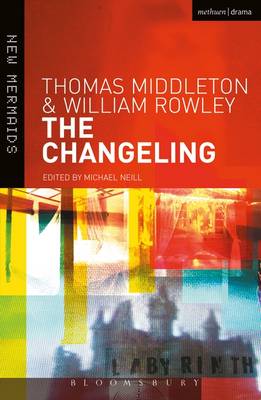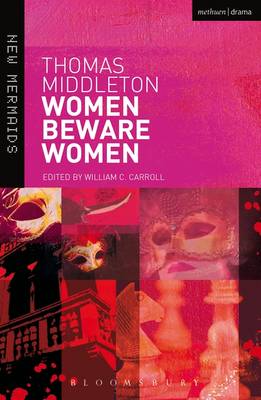University Paperbacks
3 total works
Written for the adult players at the open-air Swan theatre in 1613, this master-piece of Jacobean city comedy signals its ironic nature even in the title: chaste maids, like most other goods and people in London's busiest commercial area, are likely to be fake. Money is more important than either happiness or honour; and the most coveted commodities to be bought with it are sex and social prestige. Middleton interweaves the fortunes of four families, who either seek to marry their children off as profitably as possible, to stop having any more for fear of poverty, or to acquire some in order to keep their property in the family. Most prosperous is the husband who pimps his wife to a rich knight and lets him support the household with his alimony. Like many early modern critics of London's enormous growth, this play warned: the city is a monster that lives off the money the country produces.
Thomas Middleton (1580-1627), a bricklayer's son, rose to become one of the most eminent playwrights of the Jacobean period. Along with Ben Johnson he helped shape the dynamic course of drama in Renaissance England. His range is broad, as his work successfully covers comedy, tragedy, and history. Praised during his life as well as today, Middleton remains relevant and influential. The Changeling (1630) was composed with the aid of Middleton's friend William Rowley, also an established playwright. The drama tells of the destructive powers of vice and lust. Beatrice-Joanna is a young woman betrothed to Alonzo de Piracquo, yet Beatrice-Joanna is truly in love with another-the nobleman Alsemero. Beatrice-Joanna uses manipulative and violent means to rid herself of her suitor Alsemero. The ensuing drama results in a catastrophic tragedy, leaving only a few to contemplate justice and passion. The characters, style, and action of The Changeling effortlessly come together, making it one of the greatest tragedies of its time.
Thomas Middleton (1580-1627), a bricklayer's son, rose to become one of the most eminent playwrights of the Jacobean period. Along with Ben Johnson he helped shape the dynamic course of drama in Renaissance England. His range is broad, as his work successfully covers comedy, tragedy, and history. Praised during his life as well as today, Middleton remains relevant and influential. Set in opulent 17th century Italy, "Women Beware Women" (1657) is a dark tragedy in line with the trends of Jacobean drama. It is a tale of violence, malice, and love. The drama that unfolds in this Italian court creates a whirlwind of jealousy-leading to numerous plots of revenge and ultimate tragedy. Along with "The Changeling" (1653), "Women Beware Women" helps to form the apex of Middleton's later career.


